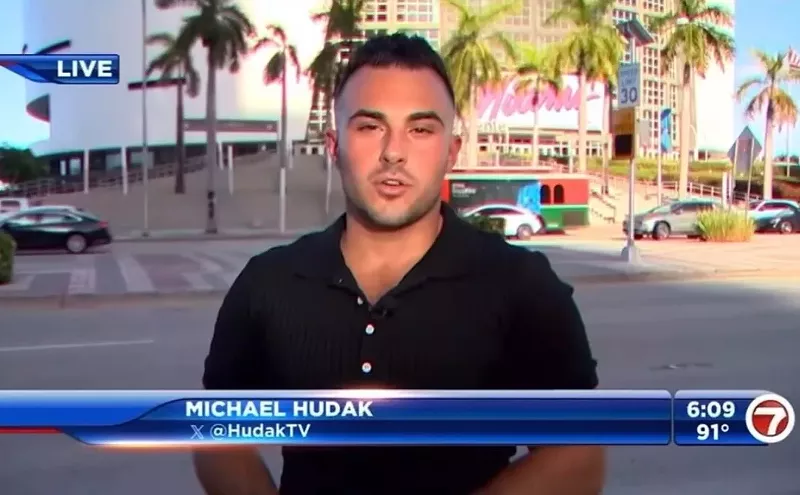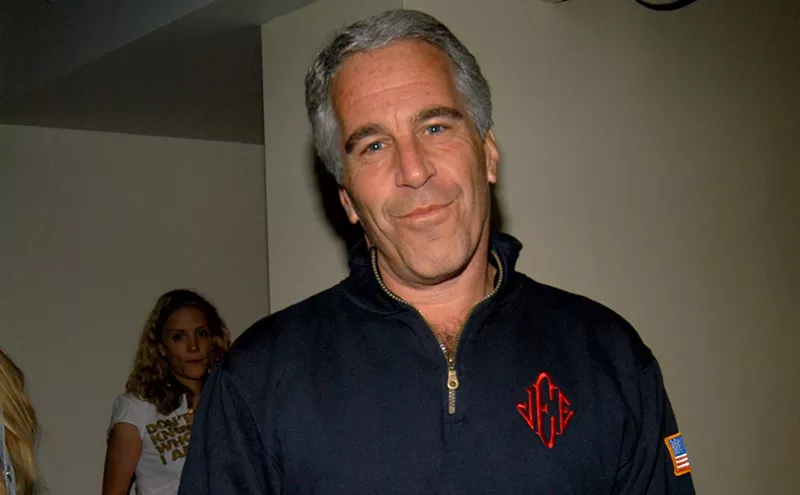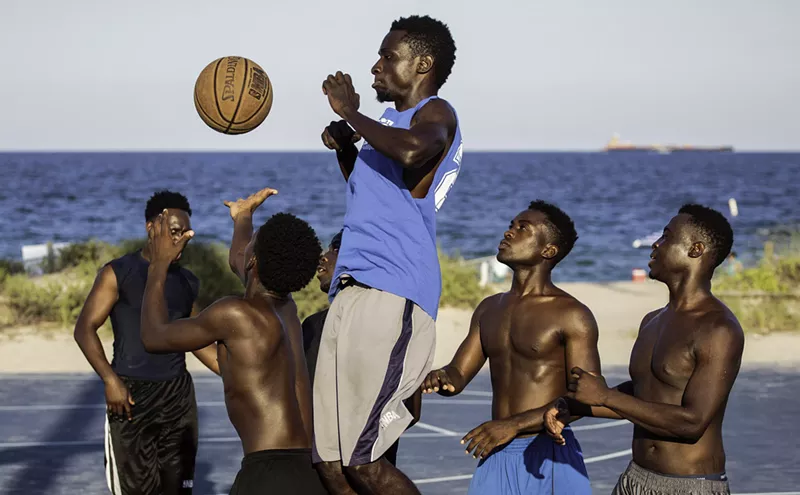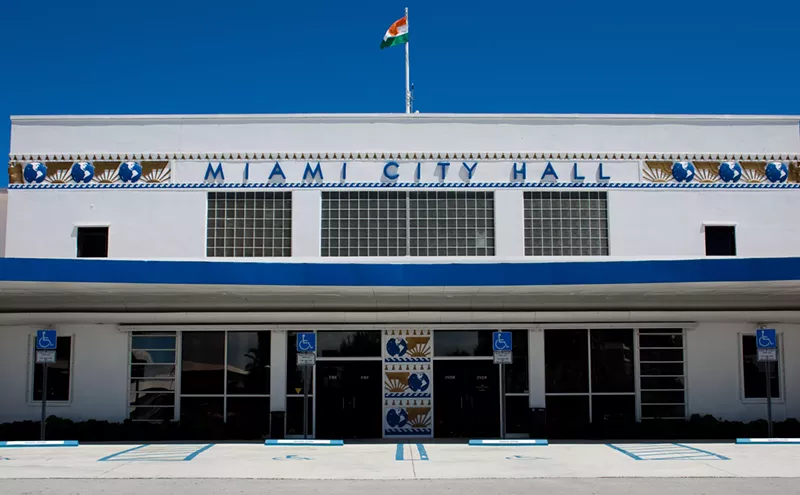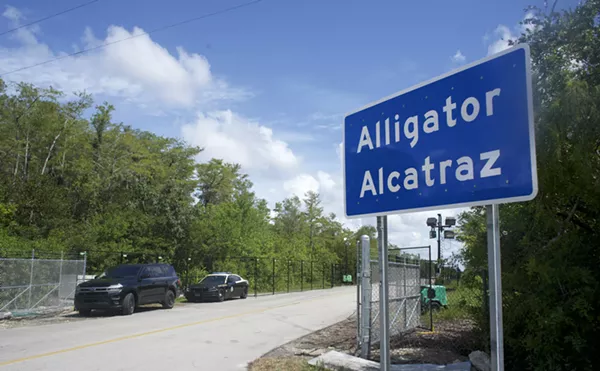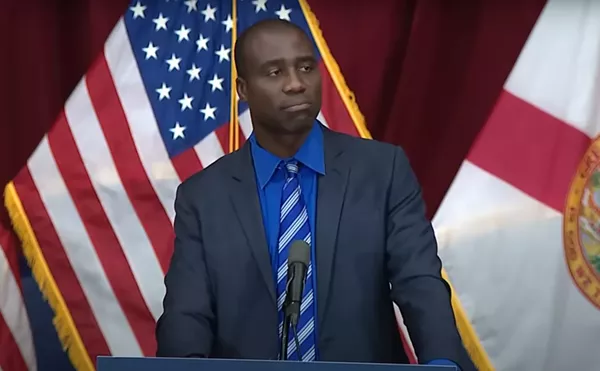Miguel Exposito may be gone, but the blowback from his turbulent reign atop the Miami Police Department hasn't ended yet. Eight months after the last of seven fatal shootings of young black men by Exposito's force, the U.S. Justice Department is set to announce this morning that federal investigators will probe the deadly spree to see if any of the victims' constitutional rights were violated.
Already Miami prosecutors have determined that several of the shootings were justified, but the Miami Herald reports that the feds will be looking for systemic problems in the MPD that led to the deaths. (Pssst -- the feds might want to watch the video of Exposito calling his cops "predators.")
The probe, called a "pattern and practice" investigation, according to the Herald, will check out whether the MPD's institutional bias became tilted toward shooting black suspects.
Many on the force and in Overtown complained that Exposito had flipped the department -- which under previous chief John Timoney had once gone 22 months without firing a shot -- 180 degrees to the other extreme.
That attitude was most clearly on display in a leaked reality TV-show promo called Miami's Finest: Special Operations Section, in which Exposito calls his cops "predators" and another cop brags about how he likes to "hunt" criminals.
Making matters worse for MPD, some of the force's least decorated officers were the most trigger happy. Ricardo Martinez shot and killed two suspects during the department's deadly run and was later arrested for trying to sell 100,000 stolen Bluetooth headsets.
Will the federal probe change anything? Exposito is already gone, and the new interim chief, Manuel Orosa, is doing a "top-to-bottom review of everything," spokesman Delrish Moss tells the Herald. (Riptide left a message with Moss this morning, but we haven't heard back yet.)
U.S. Attorney Wilfredo Ferrer is expected to officially announce the probe later this morning. We'll update when we learn more details.
Exposito sent out a long letter defending his time as police chief, suggesting that his aggressive approach led to significant drops in crime in Miami's most troubled neighborhoods.In the past 16 months, we have seen nine police involved shootings that are of concern and are the premise of our investigation. Since July 2010, MPD officers shot and killed eight young men and critically wounded a ninth man. By comparison, the country's largest police force, the New York City Police Department had one fatal shooting for every 4,313 officers in 2010, while Miami had one fatal shooting for every 220 officers. Washington D.C., with a larger population and police force, had no fatal shootings by police in 2010, compared to five by the Miami Police Department.
On November 16, 2011, the US Attorney's office in Miami announced that they would be initiating a probe into the "patterns and practices" of the Miami Police Department in their police-involved shootings that occurred in the latter part of 2010 and in 2011. In this civil investigation, there would be an examination of police policies and training involving deadly force, with a goal of determining if there were any systemic flaws.As I have stated in the past as Chief and since my separation from the Miami Police Department, I welcome any investigation into the actions of the officers, so much so, that I invited the US Justice Department, through the FBI's Civil Rights Division to participate in all of our post-shooting meetings where evidence and material facts were discussed at length.This action on my part, which was unprecedented in the police department is a good practice, and was an example of my philosophy of transparency. FBI investigators actually participated in most of the aforementioned meetings pursuant to my initial request for their involvement, shortly after the first shooting in July 2010.I also reached out to the family members of the deceased and met with those who accepted my invitation; the purpose of the meetings was to give a clear understanding of the investigative process and to explain the responsibilities of those involved in the probes. The only other Miami Police chief to even come close to meeting with the families was Donald Warshaw, who was present at meetings he held, but had the investigative supervisors speak with the family members.Although I would have preferred to give specific details of the cases, it is unfortunate that I was unable to do so. This was due to the fact that I needed to maintain the integrity of the investigations until a decision was made by the state attorney's office. In addition, classes were initiated under my administration, wherein the clergy and other community leaders such as Brian Dennis of Brothers of the Same Mind, Pastor Carl Johnson and dozens of other true community leaders were invited to observe and participate in training classes offered to entry-level officers.I must point out several facts that are important to note in reference to the police-related shootings that occurred under my administration. First, the number of fatal shootings in my first year at the helm of the police department was no more than the number of fatal shootings in last year of the previous Chief.The number of police shootings remained constant even though we took more than 400 firearms off the street from the year prior. The shooting policy in place when I took over the department, which is possibly the most restrictive in the state of Florida, was still in effect when I left the department and the training did not change.What did change was the frequency with which deadly force training took place; we provided annual training, with tactical unit officers receiving deadly force training every three months, wherein the state mandate was every four years.The prevalence of crime in certain areas may have impacted on the number of police-involved shootings. When I took over the department, the community requested an increase of police presence. I doubled the number of tactical officers, whose primary function was crime suppression from 65 to 130. Due to this increase of violent crime as a result of drug sales, gang activity and other factors, these tactical officers were assigned to work around the clock and on weekends, something that they had not done prior.As a result, violent crimes such as robberies and sexual assaults dropped to levels not seen in Miami in over 40 years. Recent editorials in local newspapers and newscasts have already alluded to an increase of violence in some of the city's neighborhoods partly due to a significant reduction of tactical officers on the city's streets.The dismantling of an effective Miami Police Department has begun at the behest of the city's administrator and other politicians who have no police experience and are simply doing what is politically expedient. I trust that this is not an attempt by the U.S. Attorney's office to politicize what should otherwise be an apolitical process.



